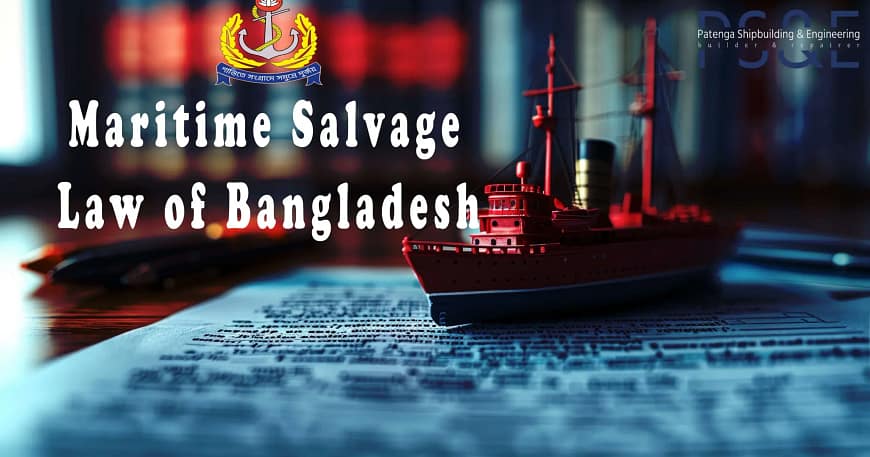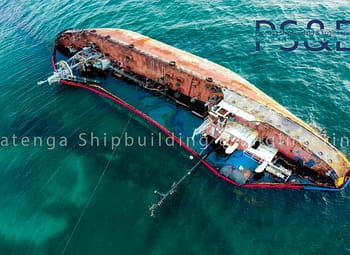Maritime Salvage Law is a maritime law where a person or group of persons who assist in rescuing a ship or cargo during danger would be eligible to get compensation under the salvage law. Salvage law is regarded as international law since it involves maritime law. However every nation does have an own set of salvage rules that are particular to its borders.
Bangladesh has always been a maritime nation. More than 90% of its trade is shipped by water. There are currently not many laws in Bangladesh pertaining to nautical or shipping matters. This profession is likewise subject to several laws and guidelines. However, these rules are unable to keep up with the growing demands of Bangladesh’s rapidly developing international commerce and commercial ties, as well as advancements in the maritime sector.
In this article we are going to discus about the marine salvage laws foundation, principles, key aspects & maritime laws of Bangladesh.
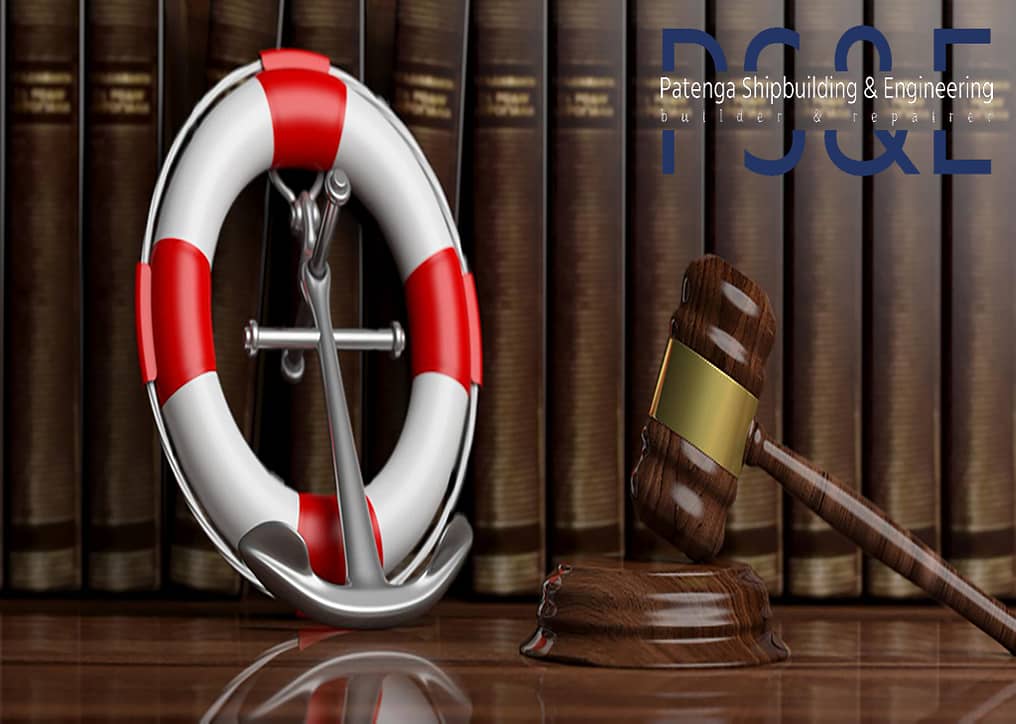
Table of Contents
ToggleMaritime Salvage Law's Foundation
Salvage is based on the idea that someone assisting another at sea puts both himself and his vessel at danger and ought to be fairly compensated. Preventing piracy was also important because, if the owner of a vessel in danger did not compensate an honest salver, the vessel may very easily be abandoned to pirates. Fairness and public interest are the foundations of the right to compensation for salvage at sea. The law aims to treat salvers & property owners equally.
Principles of Maritime Salvage Law
By promising them payment & remuneration for their salvage efforts, the principles of salvage legislation aim to motivate people to provide quick, voluntary & effective help to ships that are in danger or trouble.
The normative foundation for regulating interactions in the marine environment and creating a just and equitable legal framework for operations in the world’s oceans and seas is composed of a number of principles.
There are several Principles of marine salvage law. Below we are going to discus the principles of salvage law –
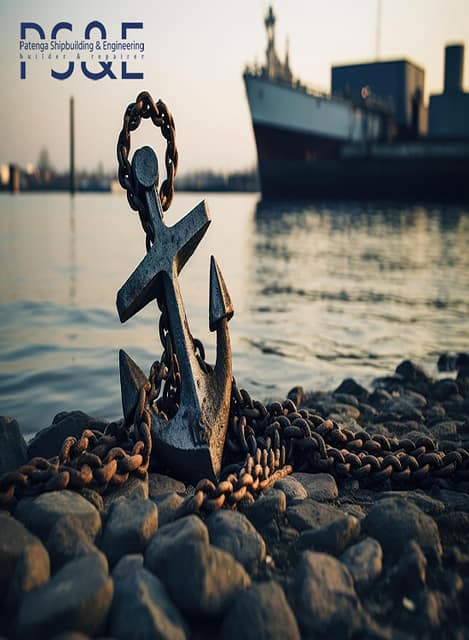
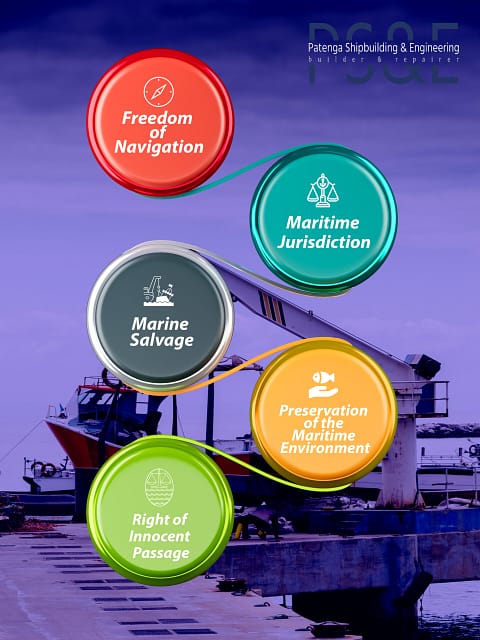
1. Freedom of navigation: Guarantees that ships are allowed to sail freely across international waterways. Ensuring this right fosters exploration, worldwide connection, and marine trade, all of which contribute to a barrier-free, effective transportation system.
2. Maritime Jurisdiction law: This defines a state’s legal power & competence at sea which includes the settlement of conflicts & the application of the law in territorial sea.
3. Marine salvage: It illustrates how the marine community shares accountability in times of need. In an event of a ship wreck or other maritime emergency, it guarantee a coordinated response & set up procedure for mutual aid amongst ships.
4. Preservation of the maritime environment: This concept lays down rules to stop pollution, manage spills & save marine life. It supports sustainability & the preservation of the sea’s natural character.
5. Right of innocent passage: It preserves the terms under which foreign ships are permitted to travel through national seas, preventing hostilities & guaranteeing international respect.
Important Maritime Law Aspects
As a field of law, maritime law includes a number of important elements that define and control actions in the maritime environment. These interrelated elements provide the legal framework that governs everything from the formalization of contracts for the transportation of products to the implementation of safety requirements and marine insurance to protect human life and the environment.
1. Contracts of maritime transportation: It govern the renting, chartering & shipping of products by water. This set forth the rights & responsibilities of the shipowner & the shipper. As well as the terms & conditions under which transportation occurs. These contracts must be clear in order to avoid disagreements & guarantee successful business dealings.

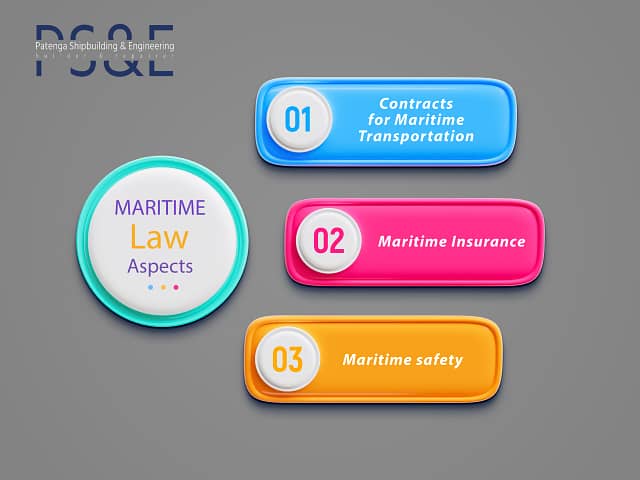
2. Maritime insurance: It is an essential part of risk management for maritime transportation. It offers the parties concerned financial security in the event of losses, damages or unanticipated circumstances while the items are being transported. The availability of marine insurance promotes financial stability & makes it easier for businesses to continue operating in the maritime sector.
3. Maritime safety: This area of maritime law is concerned with creating guidelines and rules to keep the maritime environment safe and accident-free. It covers procedures for preventing collisions, upholding shipbuilding standards, providing emergency response training, and crew training.
Maritime Law of Bangladesh
This profession is likewise subject to several laws & guidelines. The Bills of Lading Act of 1856, the Carriage of Goods by Sea Act of 1925, the Merchant Shipping Ordinance of 1983, the Marine Fisheries Ordinance of 1983, the Ports Act of 1908, the Customs Act of 1969 & other general statutes.
Furthermore, there are a lot of places in the industry with no restrictions at all. There are no laws governing, for instance, to wage, collision, salvage, marine pollution, maritime priority, or marine insurance. Bangladesh prefers to adopt English enactments via judicial reference as many subjects lack law. For instance, England’s enabling legislation—the Maritime Conventions Act, 1911—gives the 1910 Brussels Salvage Convention and 1910 Collision Convention provisions legislative effect. Even though Bangladesh hasn’t ratified the 1910 agreements yet, its courts have upheld the English enactment’s guiding principles.
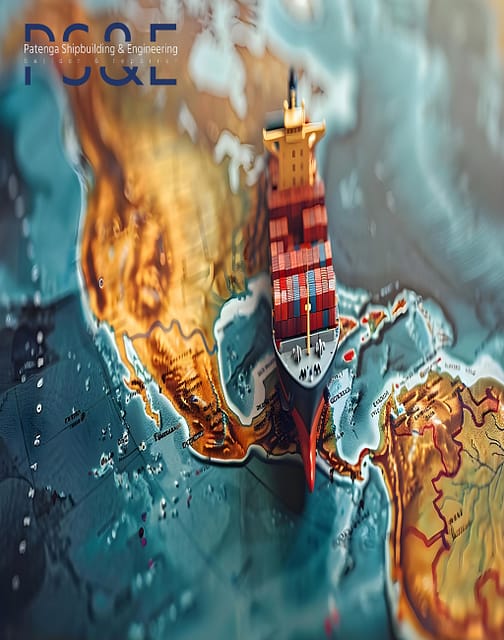
Throughout the history, marine law has served as a crucial guide for navigation, maritime trade & high-seas expeditions. The fundamentals of this law discipline must be understood for maritime safety & easy sailing. An essential & pressing job for defending Bangladesh’s rights in ocean shipping and international trade is the creation of a maritime law as part of the country’s legal system. The legal community, academics, judges, arbitrators, governments, shipowners, cargo owners, unions, brokers, insurers, seafarers, pilots & everyone else involved in the marine sector should be included in the process of creating Bangladesh’s new set of maritime laws. The activities & relationships resulting from & related to seaborne trade, such as vessel control, master & crew responsibilities, liability for vessel collisions, shipowner liability limitations, salvage & assistance, marine insurance, pollution, resolving maritime disputes, maritime liens, etc., should all be defined & governed by the new maritime laws.





